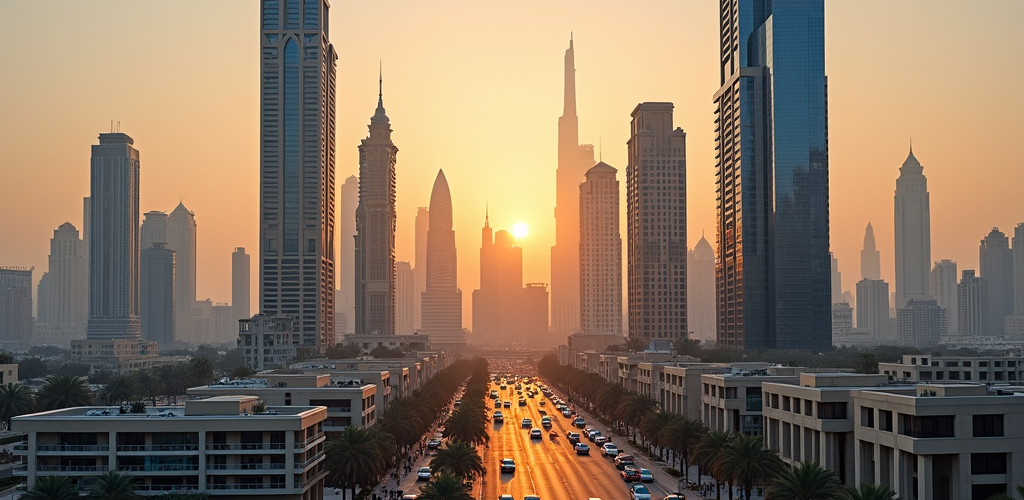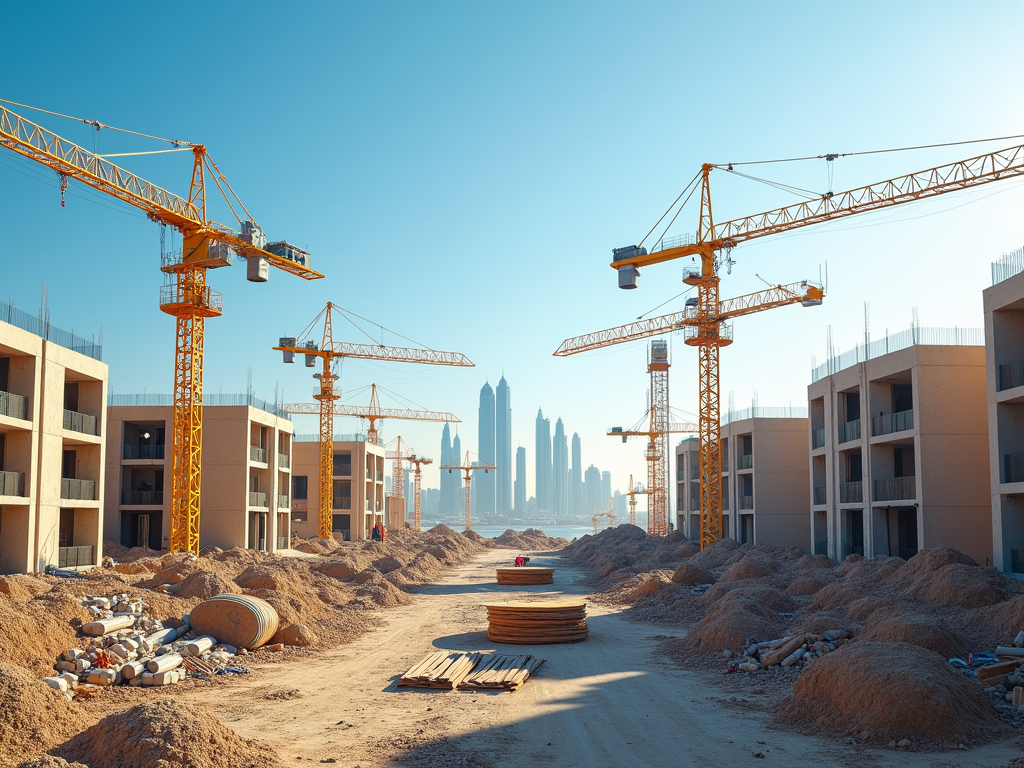How Dubai’s Real Estate Market is Affected by Global Economic Factors
December 27, 2024

Dubai’s real estate market is intricately linked to various global economic factors, which can significantly influence property values, demand, and investment opportunities. As an international hub, Dubai attracts investors from around the world who are affected by fluctuations in global economies. Factors such as foreign exchange rates, economic growth in different countries, and geopolitical stability all play a role in shaping the vibrancy of the Emirate’s property market. In this article, we will delve into how these global economic factors affect Dubai’s real estate landscape, offering insights into its current state and future prospects.
The Role of Global Economic Stability

Global economic stability is one of the most critical factors that impacts Dubai’s real estate market. During times of economic uncertainty, investors tend to withdraw their capital from high-risk markets, including real estate. Conversely, when the global economy is thriving, investors are more inclined to invest in real estate, viewing it as a secure asset. The UAE’s strategic location, coupled with its tax-free environment, makes it particularly attractive to foreign investments when the economy is robust.
Moreover, as economic growth in markets such as the U.S., Europe, and Asia stabilizes, there tends to be a corresponding increase in foreign direct investment (FDI) into Dubai’s real estate sector. A stable global economy affects various sectors, including tourism and finance, further impacting property demand. For instance, during the COVID-19 pandemic, the global economic slowdown resulted in a significant drop in property investments, but the recovery of these economies has led to a resurgence in interest in Dubai’s properties.
Foreign Exchange Rates and Their Impact

Foreign exchange rates are another crucial factor influencing Dubai’s real estate market. The UAE dirham is pegged to the U.S. dollar, which provides stability but also makes it sensitive to fluctuations in the dollar’s value against other currencies. When the dollar strengthens, properties in Dubai may become more expensive for investors using weaker currencies, potentially dampening demand from those markets. Conversely, when the dollar weakens, properties can become more affordable, enticing foreign buyers.
This dynamic has resulted in varying levels of interest from different regions. For example, a strengthening dollar can deter European investors due to currency disparities; however, it could attract investment from countries with weaker currencies. Additionally, the international desirability of Dubai properties often charts a course parallel to global exchange trends, affecting luxury real estate sales significantly.
Geopolitical Factors and Regional Stability
Geopolitical factors, particularly in the Middle East, directly affect Dubai’s real estate market. Events such as conflicts, political instability, and economic sanctions can lead to apprehension among potential investors. When regional tensions rise, foreign investors may hesitate to enter the market due to perceived risks. For instance, when tensions escalated between Iran and the U.S. or during the Arab Spring, Dubai experienced a notable slowdown in property transactions.
On the other hand, when there is stabilization in the region, Dubai often benefits as a safe haven for investment. The city acts as a gateway for businesses looking to establish a foothold in the Middle East, heightening demand for commercial and residential properties. Overall, political stability is essential for maintaining a thriving real estate market, and positive diplomatic relations can bolster investor confidence.
Dubai’s strong push towards economic diversification has significantly shielded its real estate sector from external shocks. As the Emirate moves away from dependence on oil revenues, it has been fostering a more diversified economy emphasizing sectors like tourism, hospitality, technology, and finance. This transition has helped stabilize property prices and attract a broader range of investors.
Moreover, this diversification aids in creating a more resilient market. For example, a broader range of industries provides jobs for a diverse population, increasing demand for residential housing. The government’s initiatives to promote entrepreneurship and innovation also feed into a robust real estate market, appealing to a younger, tech-savvy demographic eager for housing options. Ultimately, Dubai’s commitment to diversifying its economy has instilled a sense of confidence in potential investors, ensuring sustainable growth in its real estate market.
Conclusion
Dubai’s real estate market is undoubtedly influenced by numerous global economic factors. The stability of the global economy, fluctuating foreign exchange rates, geopolitical dynamics, and economic diversification contribute to shaping the property landscape in the region. Understanding these elements is essential for potential investors to make informed decisions and navigate the complex real estate environment in Dubai effectively. As the city continues to evolve, adapting to these global factors will play a pivotal role in its future as a leading real estate destination.
Frequently Asked Questions
1. How does global economic growth affect Dubai’s real estate market?
Global economic growth generally increases foreign investment in Dubai’s real estate, as investors seek secure and lucrative opportunities in a thriving economy.
2. What impact do foreign exchange rates have on property prices in Dubai?
Foreign exchange rates influence the affordability of Dubai properties for foreign investors. A stronger dollar may deter buyers using weaker currencies, while a weaker dollar can attract more foreign investments.
3. How do geopolitical issues influence real estate investment in Dubai?
Geopolitical instability can create apprehension among investors, causing them to hold off on investments in Dubai. Conversely, regional stability boosts investor confidence and demand.
4. Why is economic diversification important for Dubai’s property market?
Economic diversification reduces reliance on oil revenues, fostering job creation in various sectors and stabilizing demand for residential and commercial real estate.
5. What role do international events play in shaping the real estate landscape in Dubai?
International events, such as financial crises or global epidemics, can significantly impact investor confidence and, as a result, property demand and values in Dubai.